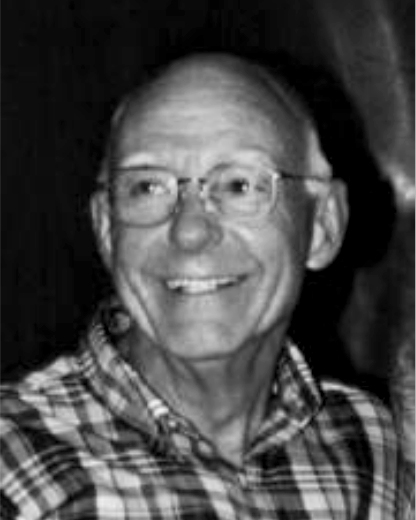
James W. Ticer died on June 2, 2005 at the age of 71 from prostate cancer. He was a native of Oklahoma. After serving 4 years in the Navy, he received his doctorate of veterinary medicine from the University of California, Davis (UCD) in 1962 and a PhD in Radiology and Radiation Biology from Colorado State University in 1967. He became a Diplomate of the American College of Veterinary Radiology in 1968.
During his professional career, Dr. Ticer was a faculty member at Universities of Missouri, Florida, California, and Oregon State. However, he was also a true pioneer of specialty medicine in private practice, being the first full time veterinary radiologist in private practice in 1969. He was a founding member of the Berkeley Veterinary Medical Group, which was the first referral-only specialty private practice. He later joined the faculty at the University of Florida and served as Department Chair, Chief of Staff, and Interim Dean of the College of Veterinary Medicine. In 1982, he returned to private practice in Santa Cruz, CA, where he built a thriving practice through his diagnostic expertise and personal charisma. During this time, he served on the faculty at UC Davis, conducting Seminars and Rounds for radiology residents. He retired in 1995 to a pastoral life in southern Oregon.
Jim loved his profession and served as an enthusiastic ambassador for veterinary radiology and a mentor to many students and veterinarians considering the pursuit of radiology as a specialty. After retirement he continued to teach and mentor at Oregon State University. He held numerous offices in the American College of Veterinary Radiology. He authored two textbooks on Veterinary Radiology and approximately 75 articles. His commanding voice and personal charm made him a highly sought after speaker, as he made over 150 local, national and international professional presentations during his career. In 1995, Jim Ticer received the UCD School of Veterinary Medicine Distinguished Alumni Award, which he acknowledged at the zenith of his professional career.
While he was an outstanding radiologist and educator, Jim’s special talent was with people. He was charming and personable, and instantly made new acquaintances feel like long-time friends. When Jim entered a practice, he called everyone by name, whether they were veterinarians, technicians, or kennel assistants.
He lived life in his final days with courage, conviction, and a simple honest truth about everything he encountered. During the final months, he was flooded with letters, emails, phone calls, and visits from extended family, former colleagues, and students who showered him with credits and praises for his leadership, mentorship, and professional example. One such telephone call was made by one of us who asked, ‘‘Jim, what can I do to make your life a little better?’’ Jim immediately responded, ‘‘What are you talking about! I am the luckiest man alive. I have a loving family. I live on our family farm in the most beautiful place in the world, and I have had the honor of being a veterinary radiologist for over 35 years.’’ This statement summarized Jim Ticer even as he suffered the excruciating pain associated with his cancer.
In his final days, he was surrounded by his family, in the able care of his wife, daughter, sons, and daughter in-laws, enjoying the last of his sunsets on his beautiful farm in Oakland, OR, watching the sheep and cattle that he had meticulously raised. He is survived by Vivian, his wife of 52 years, four children and four grand children. He leaves a legacy of love for our profession which will endure for many years in the people he inspired and influenced.
Veterinary Radiology & Ultrasound 2006 47 (4), 417.